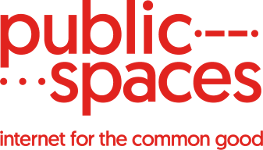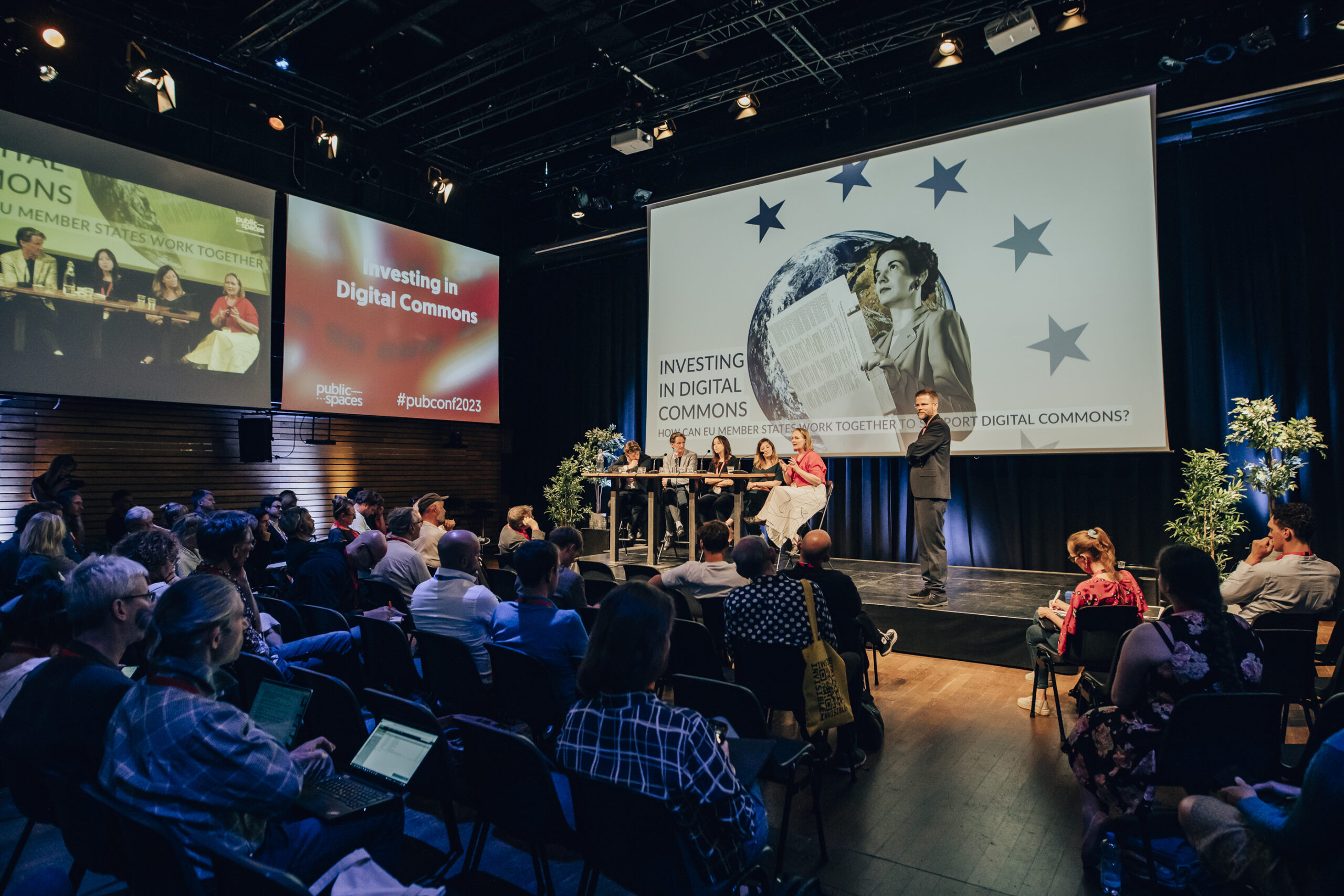This session is in English 🇬🇧
"Why are we not treating organizations – everything from large broadcasters to local coffee shops – as public spaces that can have their own digital presence?"
Ethan Zuckerman
Second breakout of track 3 Meet in the Disruptors
More often than not, disruptors are lone wolves. Part of it is by necessity, they see problems arise when other people far before others and that makes forging connecting difficult. Part of it, however, may be due to a lack of organization and a support system. And it’s exactly for this latter challenge that PublicSpaces would like to make an intervention.
In this session, we will explore the needs and desires of disruptors to help them solve the challenges that we are currently facing.
- What can we learn from each other?
- Why are we not more successful?
- Why did others win?
Format: Introduction to the topic by the moderator followed by a "round table discussion" with application providers, system changers, public organizations led by moderator
Take away: Exploring what disruption truly means (innovation, mobilization, and organization) and create awareness of the fact that not all radical changes are equal when viewed from a PublicSpaces perspective.
Moderator
Speakers
- Melanie Rieback (Radically Open Security)
- Ethan Zuckerman (Professor MIT – Public Policy, Communication and Information)
Main take aways
- There are small things we can do to change the landscape to become more competitive: e.g. mandating interoperability. Social networks are only worth something when there are people that join the network. It would be great to change the field and get tech giants to allow interoperable apps to use their networks. Another thing is to create centralized databases that can be used to filter out things such as child pornography (as this is a problem that will be present on all platforms).
- Another interesting thought experiment is the amount of money you need for universal basic income. But what if we took one or two of the Zuidas, and they could fund a universal basic income pilot for the entirety of the Netherlands. Imagine how that would change things?!
- The government or private companies are not going to solve this. Ethan believes much more in public organizations such as broadcasters and Public Spaces that are making the effort and trying to find public spaces they can take for the public good. Why are we not treating organizations – everything from large broadcasters to local coffee shops – as public spaces that can have their own digital presence?
Recap
Ethan was part of one of the first companies that allowed people to have their own page on the internet. This helped introduce the model of surveillance capitalism: people didn't pay for their services but they took their data as a business model. And he was the first person to code the pop-up ad. For a decade, he has moved towards a more social environment. He now researches how models for smaller social media networks could be made, as not every person has the same wants and needs regarding social media. So he wants smaller community-driven models. Regarding his "mistakes": tripod was meant to be a magazine, but instead, they found that people were more interested in posting their own content. They changed their business model based on this. They could have talked to their users to ask what they wanted, but rather, they designed their own platform based on efficiency, which has been adopted widely since then. Moreover, he used a colonialist model to try to "help" people in Subsaharan Africa to build their own companies with knowledge from the US.
Melanie instead moved from academia to entrepreneur. She started to work on bioinformatics at MIT but moved in 2001 to the Netherlands and went into cybersecurity for the master and PhD. She worked with Andrew Tenenbaum. When she missed out on a lot of funding during the 2008 crisis, she moved into corporate. At a certain point, she decided to leave ING bank because of a lack of openness and transparency and sharing. In the end, she felt that she was pasting technological band-aids on societal problems. This is also why she started Radically Open Security, which is a not-for-profit consultancy. She donates all her company's profit to NLNet. The NLNet foundation is an internet-based charity that helps to create a more open and fair internet. She sees her company as activism. Regarding her regrets, she says she always makes mistakes but they were necessary steps for where she is at now. She would have never started ROS if she didn't make mistakes. In retrospect, there was a very clear succession of stepping stones to where she is now. She is now working on a non-profit start-up incubator. Instead of normal incubator values (Capitol, scale, exit), she uses the values: Bootstrapping, flat growth, and non-extraction.
What are the current steps we can take at the moment to progress:
Ethan: we have a great deal of common ground around the idea of reimagining the business models that are currently being used. The issues are that the business models are toxic (we are the product, surveillance capitalism – Zuboff) and externally managed.
Melanie: she has lost faith that politics is going to solve this for us because there is a shift towards the right and it is taking too long. Tech giants are behaving like they are their own countries at the moment. The other thing is that the government is already pumping a lot of money into academic research, but the issue with academic research is that profits are being privatized and the costs are being externalized. And there is not as much money for subsidies as there is for procurement. Patagonia is a good example: environmentalist activism is the first and foremost function and clothing is secondary. Another interesting thought experiment is the amount of money you need for universal basic income. But what if we took one or two of the Zuidas, and they could fund a universal basic income pilot for the entirety of the Netherlands. Imagine how that would change things?!
Ethan: I am much less trustful and optimistic: the government or private companies are not going to solve this. He believes much more in public organizations such as broadcasters and Public Spaces that are making the effort and trying to find public spaces they can take for the public good. Why are we not treating organizations – everything from large broadcasters to local coffee shops – as public spaces that can have their own digital presence?
Jan Hein: government should maybe be involved in a different way, rather than not involved at all. A too complex legal system is also bad for start-ups etc. So the influence of the government or not is a false dichotomy. It's more about the way the government plays a role.
Melanie: post-growth economy is about regenerative and distributive. We should approach large companies in the same way. E.g. large companies like Deloitte could be distributed in 50 smaller consultancies and work together to still reach the same result of societal change (because convincing Deloitte is less likely). The problem is that the type of business that we are promoting is one of monopoly and income inequality (she gives the example of how Amazon "creates jobs" which is not true because they only redistribute the amount jobs). We need to ask ourselves: why is this the model that we are copying?
Ethan: Melanie's points are sound, but what I would add is that one of the real challenges with government subsidies is that other models are essentially impossible. They encourage other start-ups to use the same models again. There are small things we can do to change the landscape to become more competitive: e.g. mandating interoperability. Social networks are only worth something when there are people that join the network. It would be great to change the field and get tech giants to allow interoperable apps to use their networks. Another thing is to create centralized databases that can be used to filter out things such as child pornography (as this is a problem that will be present on all platforms).
Evenement tijdschema's (1)
Track 3
-
🇬🇧


Geef een reactie